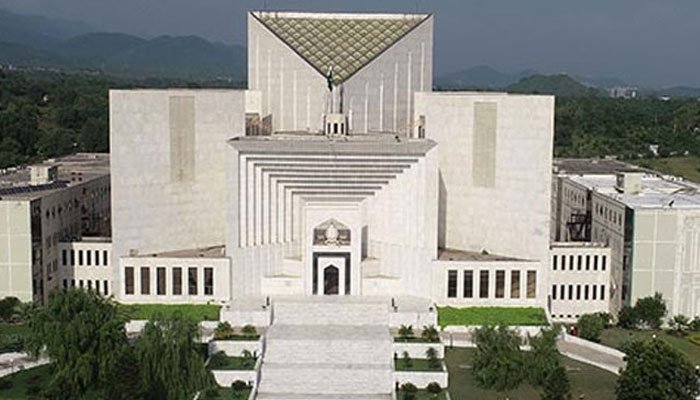In a significant development related to the Faizabad sit-in case, the Supreme Court has vested the Inquiry Commission with the authority to summon anyone during the investigation. The Attorney General has submitted a notification to the Supreme Court, announcing the formation of the inquiry commission to probe the objectives behind the sit-in and identify its masterminds. During the proceedings, Chief Justice Justice Faez Isa remarked that everyone knows who was involved, but there is a lack of courage to name them.
Chief Justice Faez Isa made it clear that if anyone refuses to appear before the commission, they could be subject to arrest. Asad Alam inquired whether former ISI DG, Chief Justice, or Prime Minister could be summoned. Justice Athar Minallah advised against tasks that involve using the power of initiating suo-motu notices, which had been misused in the past. He suggested refraining from actions that had been exercised using self-initiated notices in the past.
When asked if the truth would come out within sixty days, Chief Justice Faez Isa responded by stating that they reveal the truth when it needs to be exposed. The Inquiry Commission is now tasked with two responsibilities: either it will unveil the reality before the nation, or it will set a trend. The Chief Justice hinted at the possible influence of external forces on the Supreme Court, raising questions about the control exercised from outside.
During the proceedings, the Supreme Court also had to address Sheikh Rasheed’s withdrawal of the request, which was later dismissed by the court. The Chief Justice inquired why Sheikh Rasheed had filed the request for withdrawal, stating that the request for the inquiry had been pending for four years. Sheikh Rasheed clarified that there had been a misunderstanding, leading to the withdrawal request, which was later rectified.
Chief Justice Faez Isa emphasized the reluctance of individuals to speak the truth, mentioning the difficulty in speaking the truth and showing courage nowadays. Sheikh Rasheed acknowledged the challenges of speaking the truth and showing courage in contemporary times, to which Chief Justice Isa responded by advising not to discuss today’s issues during the present time.
Chief Justice Faez Isa raised concerns about whether the Supreme Court was being controlled from external sources. He pointed out that the requests for inquiry took a long time to be acted upon, suggesting that the court had been used for personal gains in the past. He expressed skepticism about whether, even a hundred years later, the truth about who filed the requests for inquiry would be revealed.
The Supreme Court’s decision to empower the Inquiry Commission in the Faizabad sit-in case marks a significant step towards uncovering the truth behind the events. Chief Justice Faez Isa’s remarks during the proceedings raise questions about external influences on the court and underscore the need for impartial investigations. As the inquiry unfolds, it holds the potential to bring transparency and accountability to a complex and politically sensitive issue.



